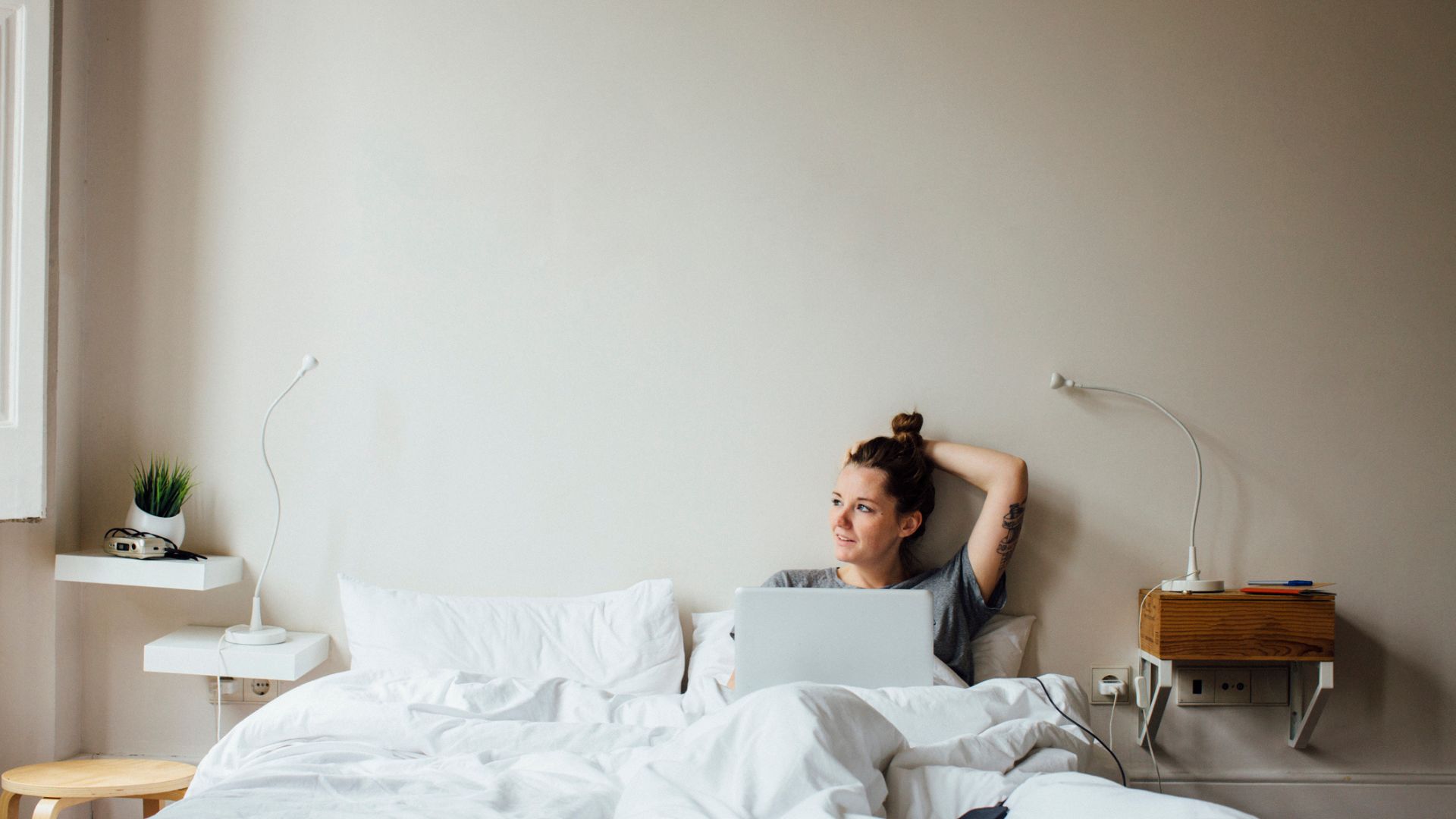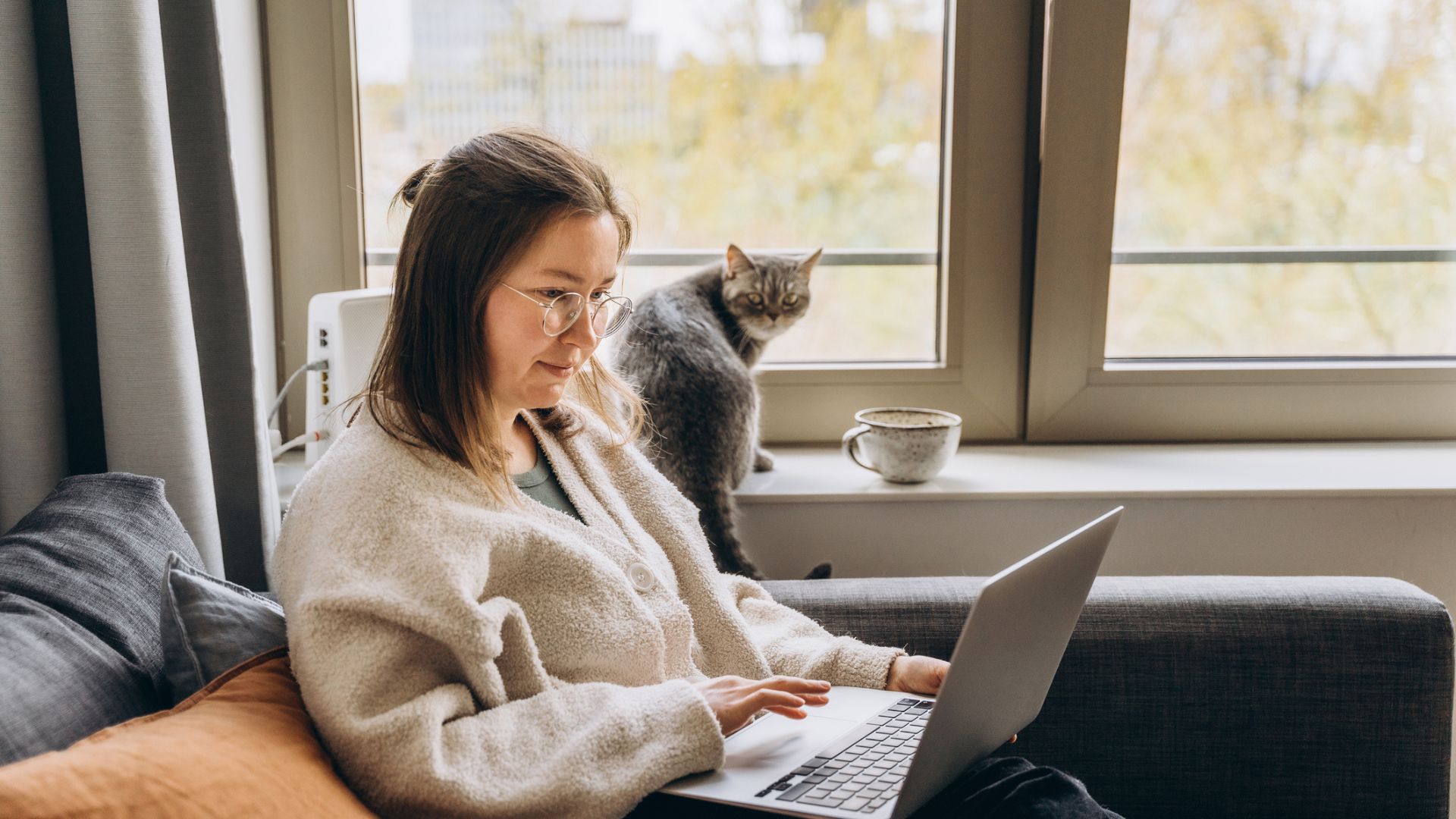
A recent report from the Office of National Statistics has revealed that individuals who work from home enjoy an average of 24 minutes more sleep compared to their office counterparts. This finding comes as part of a broader look into how the changing dynamics of the workplace has had an impact on daily routines in this post-pandemic era.
The extra sleep time is primarily attributed to the elimination of the daily commute, which is a significant time saver for those who work remotely. Without having to travel between home and a workplace, home workers gain nearly an hour of extra time per day.
This time is then divided up between “sleep and rest” with home workers not only getting more sleep but also finding an extra 15 minutes to exercise, compared with workers who head to the office. We're looking further into this study to find out why home workers experience better rest, before offering our expert advice on how to get better sleep when you work from home.
Key findings from the new study:
- Study findings show home workers get an average of 24 minutes extra sleep
- The extra sleep is attributed to the elimination of commute time
- The study shows that hybrid workers tend to be more productive and enjoy a better work-life balance
The findings from the study, published by the Office of National Statistics, showed that remote workers save an average of 56 minutes per day. This translates to an additional 24 minutes which is spent on “sleep and rest” and an extra 15 minutes of “exercise, sports and wellbeing” in comparison to those who commute to a workplace daily.
Why people working from home get more rest

Whilst the ONS study doesn’t explicitly explain the reasons behind remote workers getting more sleep, it’s reasonable to assume this is down to the time saved by not commuting.
The extra time saved by not traveling to and from a physical office every day means that employees have more time to allocate towards rest, leading to improved sleep patterns. It's interesting to note that the survey looked at the habits of those who worked at least seven hours per day during the traditional work week of Monday to Friday.
However, the benefits of remote work extend way beyond just sleep. The flexibility of working from home often results in a better work-life balance, which can then have a knock-on effect to overall wellbeing. Without a commute, workers may have more time and energy to spend engaging in physical exercise which doesn’t just lead to better overall health but can also mean better sleep.
The same goes for stress levels, working from home and avoiding a long commute can reduce stress and a reduction in stress has numerous health benefits including improved mood, better sleep quality and reduced inflammation in the body.
A hybrid worker is an employee who splits their work time between a traditional office setting and remote work, typically from home.
A Business Insights and Conditions Survey also showed that businesses are encouraging hybrid working patterns because it results in improved staff well-being. The reduction of stress, increased time for personal activities such as exercise and relaxation can all contribute to an overall sense of well-being that doesn't just improve productivity levels but can have a positive effect on a workers personal life.
However it is important to note that the relationship between working from home and improved sleep isn’t as straightforward as it may sound. Whilst the extra time and flexibility of working from home is beneficial, remote workers still need to be mindful that they don’t blur the boundary between work and home.
This means sticking to a set work schedule and ensuring that work doesn’t encroach on personal life such as checking emails or making calls outside of working hours or even starting early and finishing late, as these small actions can build up and counteract the positive effects of working from home.

How to get good sleep when you work from home
Whilst the study showed that working from home resulted in more sleep time, this doesn’t equate to quality sleep. Here’s how to fix that and get a good sleep when working from home.
Don’t work in your bedroom
Whilst space may be limited in your home, it’s very important not to set up your workstation in your bedroom. Having a clear separation between your work and sleep space can signal to your brain that your bedroom is a space for rest and relaxation, not work. This is essential sleep hygiene.
It will also remove any temptation to quickly check your emails or do a little work outside of work hours which is also detrimental to your overall well-being. When you move to your bedroom in the evening, your body and mind will recognize it as a signal that it's time to sleep, making it easier to drift off at night.
Set a consistent sleep schedule

When working from home it can be tempting to set your alarm just before your first meeting or wake up with just moments to spare before your shift, but sticking to a consistent sleep schedule can help you feel better and become more productive.
Try to create a nighttime routine and go to sleep at the same time every night, even on the weekends and set your alarm as you would if you were commuting in to the office. The extra time you have between waking and starting work can be used to enjoy a leisurely breakfast, exercise or just ease in to your morning.
Make sure you get some daylight
Working from home often means there’s no real reason to leave the house. But it’s essential you make a conscious effort to get outside and not only get some fresh air but enjoy some natural light exposure. Getting enough daylight helps your melatonin production, which then aids your sleep at night.
Taking a walk or having lunch outdoors is a great way to boost your energy levels during the day. It will also help regulate your circadian rhythm, making it easier to fall asleep at night.







